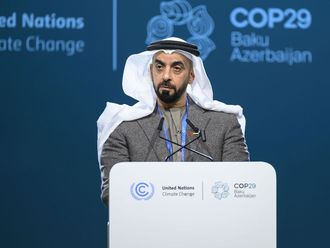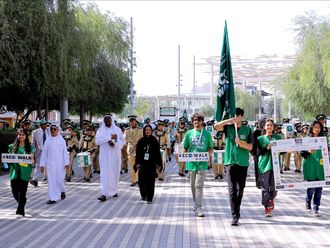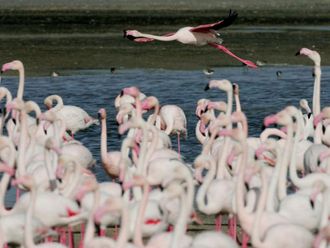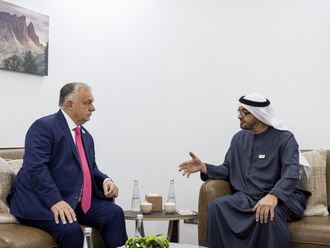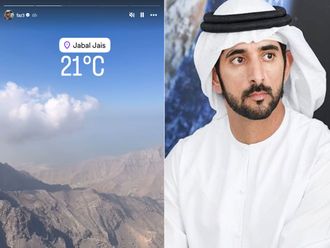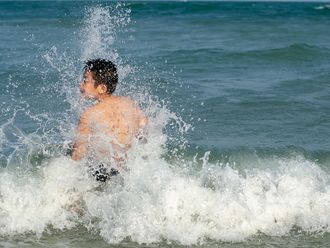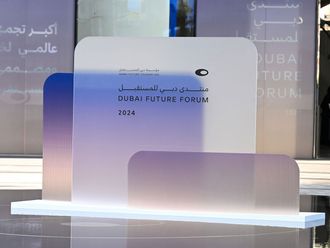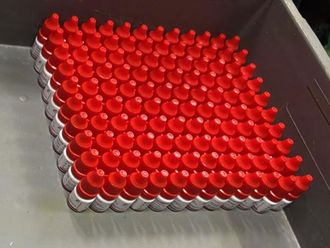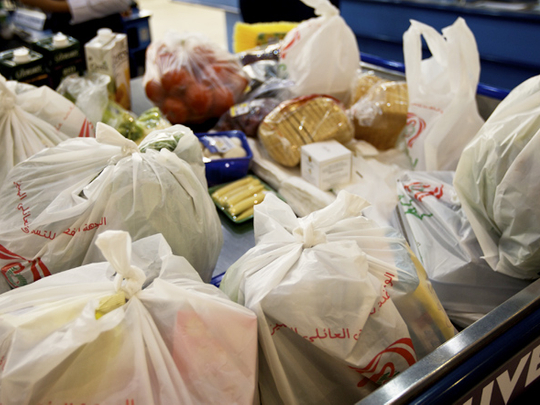
Dubai: Municipal officials believe they can slash 500 million plastic bags from being circulated before year’s end through an extensive six-month campaign beginning in May.
Dubai Municipality said on Tuesday that the plinth of its “Say No to Plastic Bags” campaign is a 20 per cent reduction in the estimated 2.9 billion plastic bags used in the emirate every year.
Abdullah Al Gaffari, head of Customer Services Unit of the Waste Management Department, said plastic bags that do not break down naturally are a menace to the environment and take up precious space in landfill sites.
“We’re looking to reduce plastic bags by 20 per cent of the total amount used by the end of the year,” Al Gaffari told Gulf News on Tuesday. “We want to reduce it by a further 15 per cent in 2014 as well.”
Convincing customers to alter their traditional shopping reliance on plastic bags will not happen overnight, he said, and will require constant campaigning through education awareness.
“It is going to be difficult for people to reduce their use of plastic bags. We need to give them an alternative such as re-usable bags made from paper or jute. Anything that can be recycled later on is good,” said Al Gaffari.
Starting in May, campaign staff will fan out across the city to visit major supermarkets every Thursday, Friday and Saturday and will offer grocery shoppers one free jute bag to carry their food items. The message is that the same jute bag can be used time and again for future grocery store runs and negates the need for plastic bags, he said.
Campaign flyers will also be distributed to educate consumers about the dangers of using plastic products.
Plastic bags that do not leave stores do not end up in the desert, he said, where “animals are eating the plastic bags and they die from it”.
Estimates suggest that up to half of the camels that die every year in the UAE die from ingesting plastic bags which can lead to massive calcified balls of plastic in the stomachs that eventually kill the animals.
Strewn bags in the marine environment also kill turtles and fish that consume the plastic materials thinking that they are food, he said.
Plastic bags also take forever to break down in the landfill, said Al Gaffari.
“Non-biodegradable plastic bags last forever, 300 to 400 years in the landfill,” he said. “The solution is using paper or jute bags instead.”
The campaign complements prior efforts to substantially reduce or eliminate plastic bags.
The Ministry of Environment and Water, for example, said it will ban in early 2014 non-biodegradable plastic products from being issued in the UAE.
In 2008, Gulf News launched a sweeping public awareness campaign ‘No to Plastic Bags’ to educate its readers about the dangers of plastic bags to humans and wildlife. Gulf News distributed 200,000 jute bags to the public to encourage the use of ecologically sound bags as an alternative to plastic.


